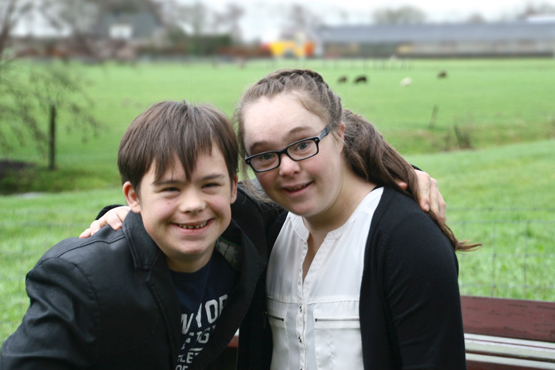
Down syndrome, present in 1 in 650-1000 live births in the Western world, is the most common genetic cause of intellectual disability in humans. Down syndrome is also known as trisomy 21, because it results from the triplication of all or part of the human chromosome 21, leading to health and developmental challenges

Name
Down syndrome was named after the 19th-century physician John Langdon Haydon Down. Dr. Down tried to classify the large number of intellectually disabled that came under his observation in Surrey, UK.
Cause
In 1959, french researchers : Lejeune, Gautier and Turpin, discovered by studying under the microscope cells of children with Down syndrome, a small 47th chromosome, finally proving the genetic origin of the syndrome. Later, this small chromosome turned out to be an additional copy of the human chromosome 21.
- 95% of the individuals with Down syndrome present a full trisomy 21: three copies of the 21st chromosome, instead of two
- Mosaicism: part of the cells present three copies of chromosome 21, but not all.
- Translocation: two copies of chromosome 21 are present, as well as an extra part of chromosome 21 that is attached to another chromosome
- Partial trisomy 21 : only a part of chromosome 21 is duplicated
Associated conditions
A recent Nature Reviews disease primer on Down syndrome by members of the society provides and overview of associated conditions and their treatment, and explores relationships between them in more detail
